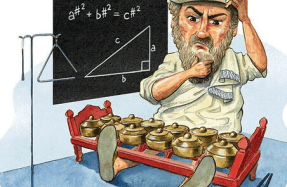The Gentle Giant


Outside South Kensington tube station stands a bronze statue of a slender, diminutive man in overcoat and hat. How Bartók became one of few composers honoured with a London statue deserves a story to itself, but here he is, the self-effacing figure whose impact on the musical world proved him a giant.
As we approach the 75th anniversary of his death, this most genuine, direct and original of composers remains somewhat in the shadow of Igor Stravinsky (who was one year his junior). That could be partly because so few western musicologists can deal with Bartók’s native Hungarian; and Stravinsky’s larger-than-life personality and sizeable assemblage of supporters also contributed to his dominant presence.
Yet is it perhaps Bartók who was the lifelong original, his tales of the musically unexpected evolving, maturing and growing more profound the better we know them? This is the perfect time to reassess his position in the annals of 20th-century music. The greatest composer of his day? You decide. I already have.
The pianist
Bartók is not often considered amid the golden-age composer-pianists. Perhaps he should be. His performing career accounted for much of his early fame, taking him on high-profile international concert tours and sparking much music that he wrote to perform himself.
Bluebeard is a work of profound psychological and musical power
He entered the Royal Academy of Music in Budapest in 1899, preferring to go to the Hungarian capital rather than Vienna. Heading there from Pressburg – where he and his mother had lived since his father’s early death – he studied with István Thomán, a pupil of Liszt. On Thomán’s retirement in 1907, Bartók took over his post. Later, his younger son Peter (from his second marriage) recalled him referring to the Academy as ‘the Awful Place’. He hated teaching, but as his
You’re reading a preview, subscribe to read more.
Start your free 30 days



